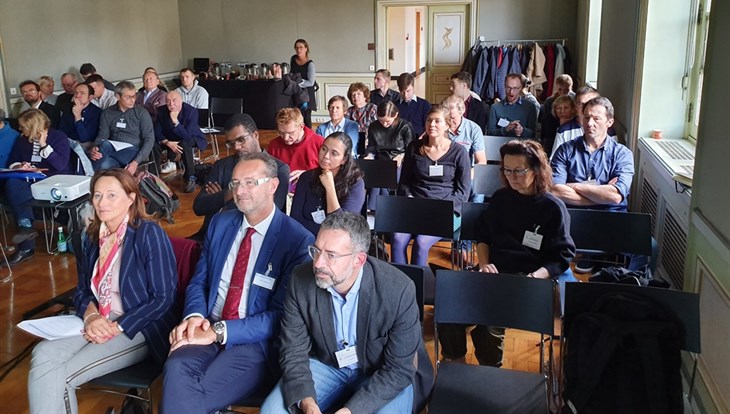© сайт Томского государственного университета
TOMSK, Nov 8 – RIA
Tomsk. Russian scientists, including employees of the
Tomsk State University (TSU), plan to create a network with French researchers
to study environmental changes in Siberia and the Arctic; it is expected that
the relevant agreement will be signed in 2020, the press service of TSU
reported on Friday.
According to the press service, scientists of TSU, V.E. Zuev Institute
of Atmospheric Optics SB RAS, Siberian Federal University, Moscow State
University, Institute of Geography RAS together with colleagues from the French
National Center for Scientific Research (CNRS) discussed creation of network
for a research of changes of the environment in Siberia and the Arctic during
the working seminar in Paris.
"The French are interested in doing research in this territory.
They are ready to combine scientific potential and their resources with Russian
centers within the framework of a joint network, which has already received the
working name "From tundra to steppe." <…> The next step will be
to present it to the management of scientific centers of Russia and France – potential
participants of the network – and to the government of the two countries",
– the message says.
With reference to the Director of the Center of Excellence
"BioClimLand" of TSU Sergey Kirpotin, it is reported that Tomsk
scientists presented a megatransect (a line of research stations and all-season
sampling points for studying environmental changes) in Paris, allowing to
conduct research throughout the year. It is intended to create a new transect
from west to east along the gradient of the continental nature of Siberia.
The territory of Siberia and the Arctic has an influence on climate
formation, so foreign scientists are interested in the possibility to get new
information about demonstrations of global warming and its possible
consequences, the press service notes. It is planned to sign an agreement on
the establishment of a joint network in 2020. Combining forces will allow
scientists to obtain a synergistic effect.
"The French have very developed technologies of remote sensing of
the Earth, which are optimally suitable for exploration of Siberia and the
Arctic due to their huge spaces and availability of hard-to-reach places, for
example, such as Vasyugan marshes. (Also) there are very strong specialists in
biogeochemistry in France. This direction has a huge role in the study of
climate", – Kirpotin words are quoted.